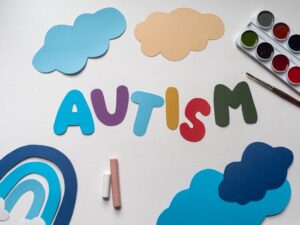A few days ago, I was reading a parenting book, and it brought up the topic of children lying. It made me think about my own daughter. She’s always been a good, obedient child. I’ve taught her from a young age that lying is wrong. Still, there are times when she chooses not to tell me something right away. Instead, she waits until I find out, and only then explains. When I asked her why, she said, “Because I’m scared you’ll be mad at me.”
That made me realize something important: when kids lie, it’s not because they’re bad. It’s because they’re scared.
What Makes a Child Lie?
Imagine this: a little girl named Mia secretly plays with her mom’s makeup and smears it all over her dolls. By the time she’s done, the makeup is ruined. When her mom gets home and asks, “Who touched my lipstick?” Mia looks down, nervously, and says, “It wasn’t me. I think my brother did it.”
At first, this might look like just a naughty lie. But really, Mia is scared of being scolded. Lying becomes her way to protect herself.
The truth is: most kids lie because they’re afraid of getting into trouble—not because they’re trying to be dishonest.
“When kids lie, they’re not testing boundaries. They’re protecting themselves.”
— Common insight in child psychology
What Are Kids Really Afraid Of?
Fear of punishment
If kids know they’ll get yelled at or punished for telling the truth, they’ll stop being honest.
Not feeling heard
If a child once told the truth and got ignored or shamed, they learn that being honest doesn't feel safe.
Pressure to be perfect
Some children lie because they’re scared of disappointing parents who expect too much.
Lack of emotional safety
If home doesn’t feel like a safe place to express mistakes or emotions, kids will hide what really happened.
Lying Is a Cry for Help, Not a Character Flaw
When your child lies, try not to panic or get angry. Instead, ask yourself:
“Is my child afraid of how I’ll react?”
Lying is often a signal that a child doesn’t feel safe enough to tell the truth. And that means we, as parents, have an opportunity to create a better environment.
How to Help Your Child Be Honest
Stay calm first, talk later
When your child makes a mistake, stay calm. Say, “Can you tell me what happened? I just want to understand.”
Use empathy, not blame
Try saying, “I remember doing something similar when I was your age. I get it.”
It helps them feel seen and heard.
Make honesty feel safe and appreciated
When your child tells the truth—even about something bad—thank them. Let them know that honesty matters more than perfection.
Let them know mistakes are okay
Tell your child, “Everyone makes mistakes. What’s important is that we learn and try again.”
No Fear, No Lies
Kids don’t lie because they’re bad. They lie because they’re scared. If we can give them a safe, loving, and respectful home—one where they don’t feel afraid of being scolded—then even when they mess up, they’ll feel okay coming to us. They’ll know: “Mom and Dad will still love me. They’ll help me figure it out.”
So the next time your child lies, try not to focus on the lie itself. Focus on why they felt the need to lie. That’s where real change begins.













